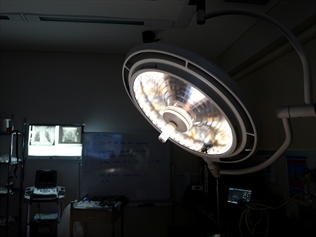
Doctors are regularly failing to recognise bouts of delirium after patients undergo anaesthesia. Source: AAP
DOCTORS are regularly failing to recognise bouts of delirium after patients undergo anaesthesia, an intensive care physician warns.
PROFESSOR Yahya Shehabi will tell an Australian and New Zealand College of Anaesthetists meeting in Sydney on Saturday that disordered and erratic thoughts, behavioural changes and self-harm go unrecognised despite potentially signalling other health problems.
Prof Shehabi said awareness of post-anaesthetic delirium was “a new comer to critical care” and better tools were needed to treat it, given it’s associated with an increased risk of cognitive decline, accelerated dementia and death. Post-operative delirium occurs in one in five patients, but medical staff don’t know how to diagnose an episode, which could last from hours to days, he said. “For every day delirium occurs there is 35 days of impaired cognitive and executive function – people are unable to go back to their normal work,” Prof Shehabi said in a statement. “Post-operative delirium is not a benign phenomenon – it is a serious and malignant complication that heralds the onset of acute brain dysfunction.” Prof Shehabi said said delirium was likely caused by several factors, including age, complex surgery, concurrent infection and the depth of anaesthesia.
